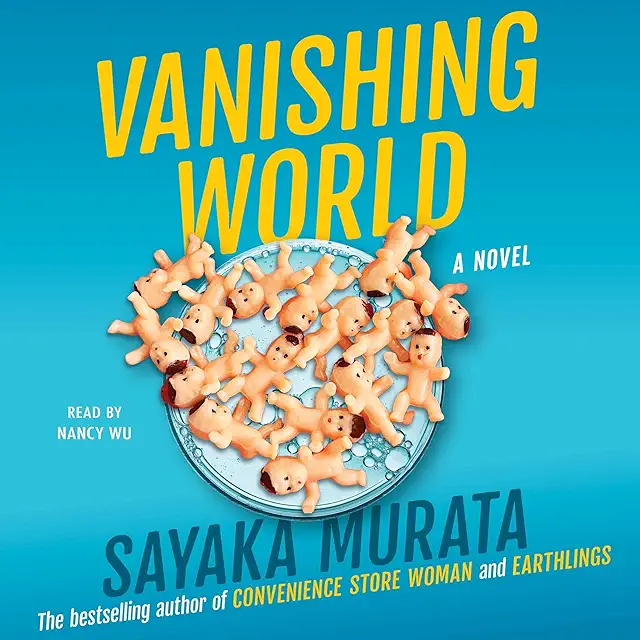
April 13, 2025
Book Review: Vanishing World by Sayaka Murata
A chillingly plausible future
If Sayaka Murata has proven anything in her career, it’s that she isn’t afraid to ask the most unsettling questions about modern life—and follow them to their bleakest, most bizarre conclusions. With Vanishing World, originally published in Japan in 2015 and now newly translated by Ginny Tapley Takemori, Murata once again challenges the boundaries of societal norms, this time through the lens of reproduction, intimacy, and identity in a world that has all but erased them.
Vanishing Worlds by Sayaka Murata
Set in a chillingly plausible future, Vanishing World presents a society where society has surgically separated sex and procreation. Artificial insemination is the sole method of reproduction, marriages are contractual arrangements devoid of affection or physical intimacy, and traditional family structures are inefficient and outdated. Emotions are messier than spreadsheets, and society has chosen order.
Amane, our protagonist
Amane, the novel’s protagonist, is a rare anomaly. Conceived through sex—an act now considered not just old-fashioned but shameful—she carries the stigma of her parents’ taboo transgression. Her efforts to assimilate are heartbreaking and deeply ironic: she avoids romantic attachment, maintains socially sanctioned casual affairs, and clings to relationships with anime characters in lieu of real emotional intimacy. But her very existence is a quiet rebellion, and as she ages, that quiet starts to turn into questions.
Read more Japanese literature recommendations here.
The turning point comes when Amane and her husband decide to relocate to Eden. This is a state-run experimental community. Here, even the faintest traces of human connection are engineered out. Men have artificial wombs. Parents raise children communally; their origins are anonymized. Love, parenthood, even personal identity undergo systematic dismantling in the name of social harmony. It’s the logical endpoint of her society’s ideology—and it’s where Amane begins to break.
An eerily serene dystopia
Murata’s dystopia is eerily serene. A world of fluorescent calm and sterilized logic that masks the horror of what’s been lost. What makes Vanishing World so unnerving isn’t its strangeness, but its plausibility. Murata doesn’t imagine some far-off apocalypse. She merely nudges contemporary ideas about efficiency, technology, and emotional detachment a few steps further. In doing so, she forces readers to confront uncomfortable truths about the systems we already live within.
Ginny Tapley Takemori’s translation is characteristically deft, preserving the sterile cadence of Murata’s prose while allowing moments of emotional fracture to slip through. The tension she maintains—between the neutral surface and the roiling questions beneath—is masterful.
Will I like it?
For fans of The Handmaid’s Tale, Never Let Me Go, or Brave New World, Vanishing World is an essential book. It’s speculative fiction at its most disturbing. A meditation on what makes us human, and what we risk losing in the pursuit of perfection.







